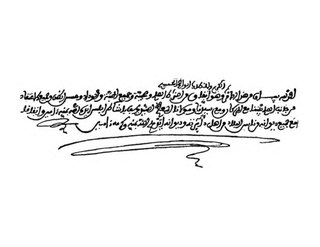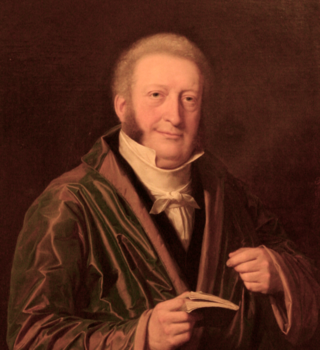
The First Barbary War (1801–1805), also known as the Tripolitan War and the Barbary Coast War, was a conflict during the Barbary Wars, in which the United States and Sweden fought against Tripolitania. Tripolitania had declared war against Sweden and the United States over disputes regarding tributary payments made by both states in exchange for a cessation of Tripolitatian commerce raiding at sea. United States President Thomas Jefferson refused to pay this tribute. Sweden had been at war with the Tripolitans since 1800.

Pinckney's Treaty, also known as the Treaty of San Lorenzo or the Treaty of Madrid, was signed on October 27, 1795 by the United States and Spain.

George McCartney, 1st Earl McCartney, also spelt Macartney, was an Anglo-Irish statesman, colonial administrator and diplomat who served as the governor of Grenada, Madras and the British-occupied Cape Colony. He is often remembered for his observation following Britain's victory in the Seven Years' War and subsequent territorial expansion at the Treaty of Paris that Britain now controlled "a vast Empire, on which the sun never sets".

The Treaty of Tripoli was signed in 1796. It was the first treaty between the United States and Tripoli to secure commercial shipping rights and protect American ships in the Mediterranean Sea from local Barbary pirates.

William Eaton was a United States Army officer and the diplomatic officer Consul General to Tunis (1797–1803). He played an important diplomatic and military role in the First Barbary War between the United States and Tripoli (1801–1805). He led the first foreign United States military victory at the Battle of Derne by capturing the Tripoli subject city of Derne in support of the restoration of the pasha, Hamet Caramelli. William Eaton also gave testimony at the treason trial of former Vice President Aaron Burr. He served one term in the General Court of Massachusetts. Eaton died on June 1, 1811, at the age of forty-seven.

The Roman Republic was a sister republic of the First French Republic. It was proclaimed on 15 February 1798 after Louis-Alexandre Berthier, a general of Napoleon, had occupied the city of Rome on 10 February. It was led by a Directory of five men and comprised territory conquered from the Papal States. Pope Pius VI was exiled to France and died there in August 1799. The republic immediately took control of the other two former-papal revolutionary administrations, the Tiberina Republic and the Anconine Republic. The Roman Republic proved short-lived, as Neapolitan troops restored the Papal States in October 1799.
The Barbary Treaties refer to several treaties between the United States of America and the semi-autonomous North African city-states of Algiers, Tunis, and Tripoli, under the rule of the Ottoman Empire, known collectively as the Barbary States.
Yusuf Karamanli, Caramanli or Qaramanli or al-Qaramanli, was the longest-reigning Pasha of the Karamanli dynasty of Tripolitania. He is noted for his role in the Barbary Wars against the United States.
James Leander Cathcart was an Irish-American diplomat, slave, and sailor. He is notable for his narrative as a slave in Algiers for eleven years.

Tunisia – United States relations are bilateral relations between Tunisia and the United States.
Eline Heger, née Schmidt, was a Danish stage actress.

James Boaden was an English biographer, dramatist, and journalist.

This is a summary history of diplomatic relations of the United States listed by country. The history of diplomatic relations of the United States began with the appointment of Benjamin Franklin as U.S. Minister to France in 1778, even before the U.S. had won its independence from Great Britain in 1783.

Peter Jørgen Frydendahl (1766-1830), was a Danish stage actor. He belonged to the elite actors of the Royal Danish Theatre from 1786. He was described as a versatile actor, was active also as a singer, and particularly noted for his comic roles, for which he was called the most noted of his time. He was also principal of the acting school from 1816.












